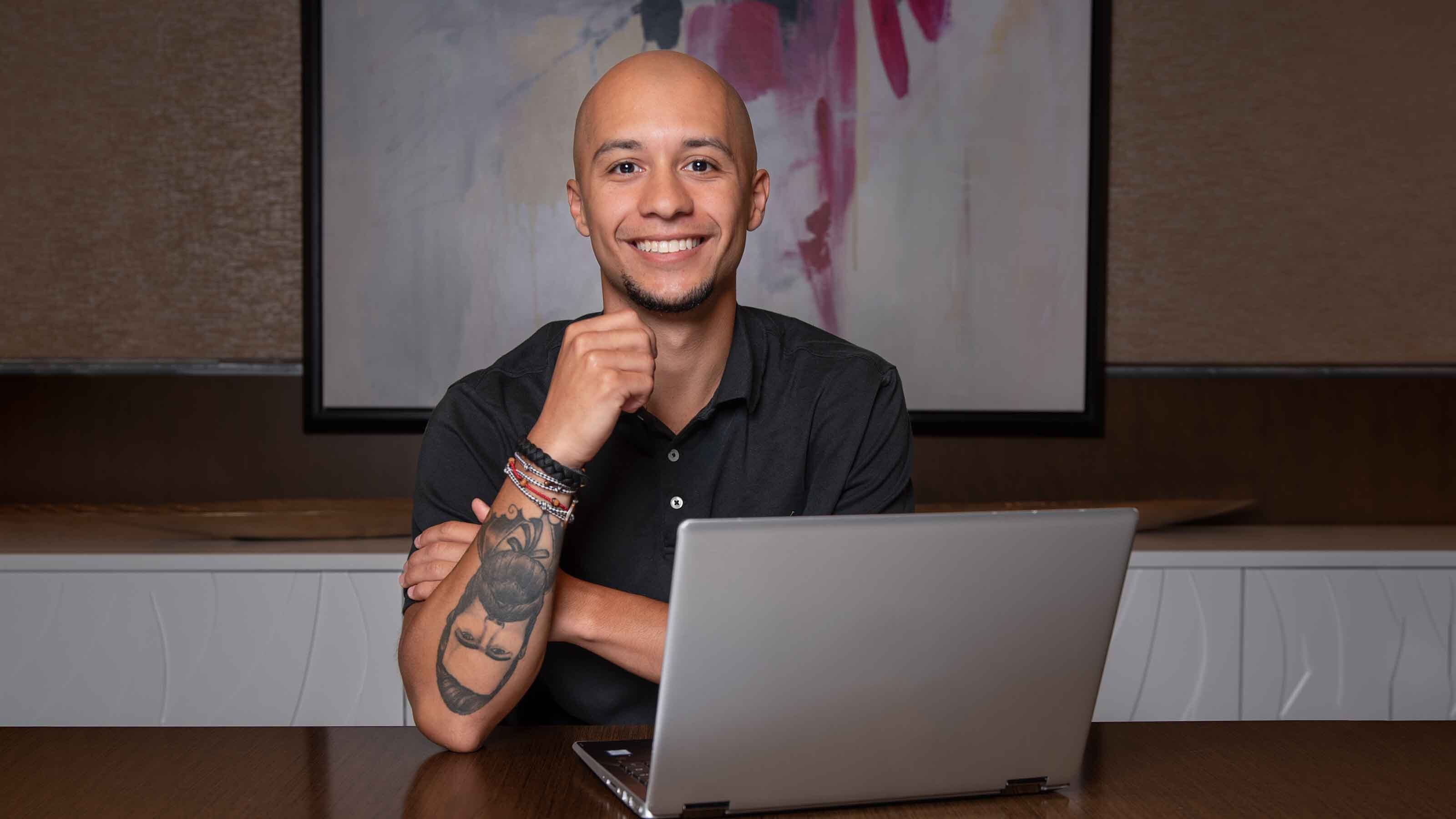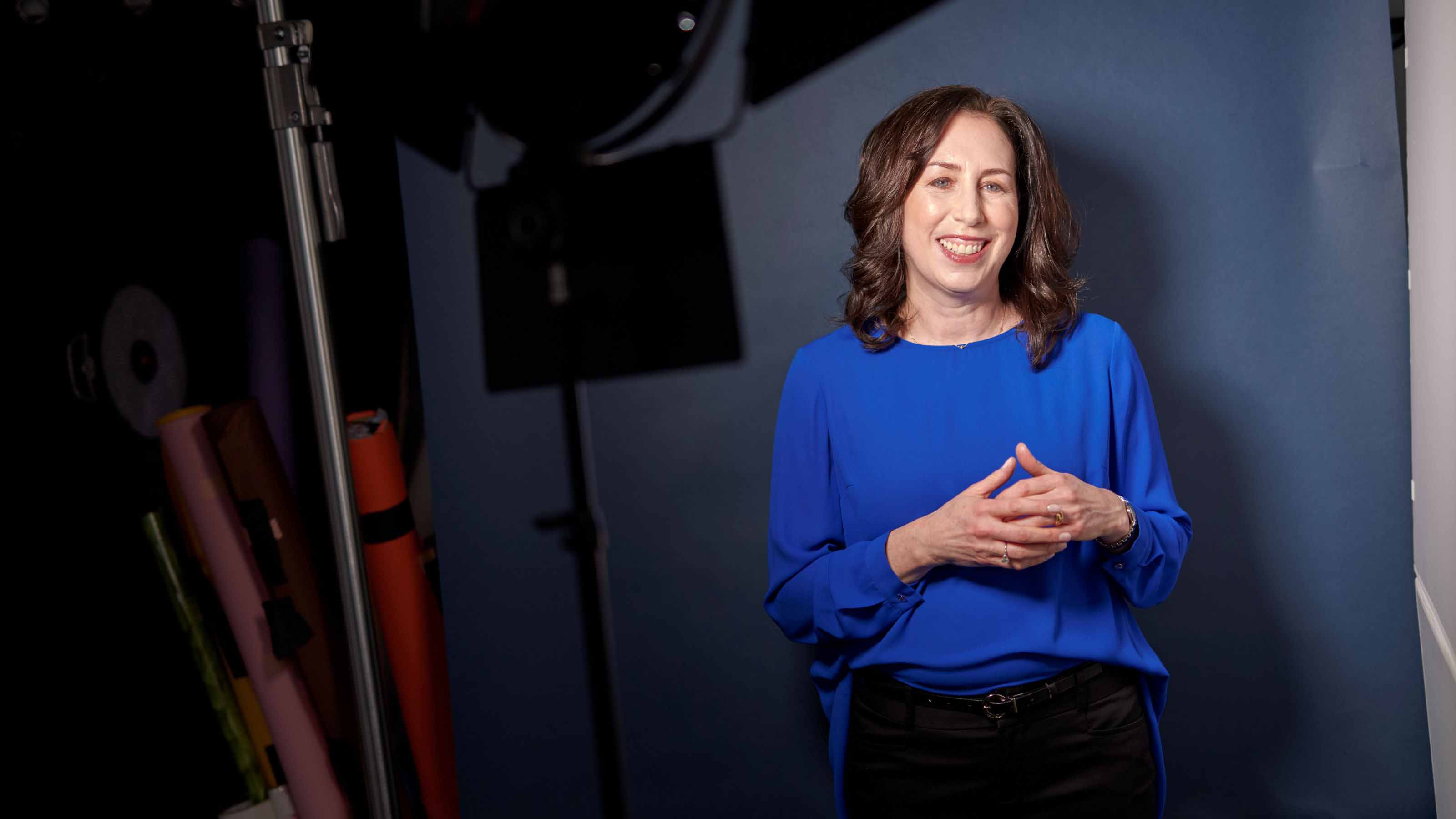Free Classes to Boost Your Career
Instead of taking on more student debt, continue your education with massive open online courses (or MOOCs).

Profit and prosper with the best of Kiplinger's advice on investing, taxes, retirement, personal finance and much more. Delivered daily. Enter your email in the box and click Sign Me Up.
You are now subscribed
Your newsletter sign-up was successful
Want to add more newsletters?

Delivered daily
Kiplinger Today
Profit and prosper with the best of Kiplinger's advice on investing, taxes, retirement, personal finance and much more delivered daily. Smart money moves start here.

Sent five days a week
Kiplinger A Step Ahead
Get practical help to make better financial decisions in your everyday life, from spending to savings on top deals.

Delivered daily
Kiplinger Closing Bell
Get today's biggest financial and investing headlines delivered to your inbox every day the U.S. stock market is open.

Sent twice a week
Kiplinger Adviser Intel
Financial pros across the country share best practices and fresh tactics to preserve and grow your wealth.

Delivered weekly
Kiplinger Tax Tips
Trim your federal and state tax bills with practical tax-planning and tax-cutting strategies.

Sent twice a week
Kiplinger Retirement Tips
Your twice-a-week guide to planning and enjoying a financially secure and richly rewarding retirement

Sent bimonthly.
Kiplinger Adviser Angle
Insights for advisers, wealth managers and other financial professionals.

Sent twice a week
Kiplinger Investing Weekly
Your twice-a-week roundup of promising stocks, funds, companies and industries you should consider, ones you should avoid, and why.

Sent weekly for six weeks
Kiplinger Invest for Retirement
Your step-by-step six-part series on how to invest for retirement, from devising a successful strategy to exactly which investments to choose.
Lifelong learning is part of many successful careers. But because employers are getting stingier with tuition-reimbursement benefits and graduate programs can leave young workers swamped with debt, higher education may seem hard to come by. Look to the growing crop of free online classes to give you a knowledge boost.
Known by the unwieldy term "massive open online courses" (or MOOCs, for short), these classes are (mostly) free digital replicas of actual college offerings (sometimes you have to pay a fee if you want a certificate upon completion). While moving the classroom experience online may limit your time with the professor, the digital classes still encourage a high level of interaction with lots of multimedia extras, including forums to chat with classmates, videos and quizzes. Most courses are created and offered by traditional colleges or universities, such as the Massachusetts Institute of Technology; others come from for-profit Web sites.
MOOCs are helping people earn more money, get promoted and switch careers. In the past, employers were hesitant to take them at face value. (In 2012, I gave free online classes a poor grade as career boosters; "hiring professionals don't care about them," a human resources consultant told me at the time.) But now that some courses are experimenting with accreditation and business partnerships, managers are taking notice. As Knight Kiplinger, editor in chief of Kiplinger's, noted in A College Degree Isn't Enough, once rigorous testing satisfies employers, these classes could mean as much as — or even more than — a conventional degree.
From just $107.88 $24.99 for Kiplinger Personal Finance
Become a smarter, better informed investor. Subscribe from just $107.88 $24.99, plus get up to 4 Special Issues

Sign up for Kiplinger’s Free Newsletters
Profit and prosper with the best of expert advice on investing, taxes, retirement, personal finance and more - straight to your e-mail.
Profit and prosper with the best of expert advice - straight to your e-mail.
One MOOC success story, Ryan Hanna, 30, has a million reasons to agree. Just a few years ago, Hanna was a network administrator with limited coding experience. But he wanted to learn a new skill that would boost his annual income and eventually lead to a new career. As a 2012 New Year's resolution, he dove into a free course at Codeacademy. About six days into his lessons, he came up with the idea for Sworkit, a clever fitness app that launched in May 2012 and gained a million free downloads in just 307 days. Thanks to his app's success, Hanna has gotten several job offers and a new career track. Now, he's living in England, developing apps full-time and working with his wife on an education start-up to teach kids robotics and coding.
How MOOCs Work
You can start your own online-learning success story by creating an account on a MOOC Web site. Popular options include Udacity and Coursera. Another option is edX, which was created at MIT and features classes from MIT, Harvard, Georgetown and other esteemed schools. (Keep in mind that the vast majority of MOOCs currently lack accreditation.) Peruse the hundreds of class options, and take your pick.
Classes run the gamut, from the classic Intro to Statistics to the more advanced Intro to Artificial Intelligence and the professionally focused How to Build a Start-up. The first wave of MOOCs was adept at teaching science and math skills because it was easier to design an online class that gave auto-graded, multiple-choice quizzes. Now MOOCs are getting better at teaching important "soft" skills, including writing, critical thinking and public speaking.
For example, on Coursera, Matt McGarrity, a professor at the University of Washington, teaches Introduction to Public Speaking — a perfect choice to hone your job-interview skills, especially if you're trying to transition to a different field, says McGarrity. Students upload videos of their speeches onto a private YouTube channel (so you need a video camera or webcam to participate), and classmates review each other's work.
For some classes, you can start whenever you like. Others have specific start and end dates. Either way, without the motivation of in-person classes or the investment of tuition dollars, you may struggle to stay engaged. It's not uncommon for MOOCs to have completion rates in the single digits. The University of Pennsylvania found that its MOOCs have a 2% to 14% completion rate.
You'll need to schedule at least three hours per week for most classes. Stay engaged by interacting on online forums, tinkering with small projects and promoting your journey on social media.
Brandish Your Badge
Once you finish a MOOC, flaunt your academic accomplishment on your résumé, LinkedIn account and personal Web site. Many MOOCs make it easy to share your success. In addition to digital certificates, some courses award you small icons you can display on LinkedIn.
Those badges matter. They show employers you are actively learning and passionate about certain topics. "The more you can signal to employees what you can do, the better," says Mary Alice McCarthy, a senior education policy analyst at the New America Foundation, a public policy think tank.
Depending on your course of study, you should also aim to make something to show off at the end of your course. Knowledge is invaluable, but tangible evidence of your know-how may be needed to win over employers. It can also deepen your educational experience. Simply "learning to code," for instance, can turn into a dead end. But for Sworkit developer Hanna, setting his sights on building an actual app not only gave him a marketable product at the end of his course, it also provided him added direction throughout his lessons. Instead of memorizing facts, he was solving problems. "I learned more than any additional degree would have taught me," says Hanna. "All with zero new debt and no regrets."
Profit and prosper with the best of Kiplinger's advice on investing, taxes, retirement, personal finance and much more. Delivered daily. Enter your email in the box and click Sign Me Up.

John Miley is a Senior Associate Editor at The Kiplinger Letter. He mainly covers AI, technology, telecom and education, but will jump on other business topics as needed. In his role, he provides timely forecasts about emerging technologies, business trends and government regulations. He also edits stories for the weekly publication and has written and edited email newsletters.
He holds a BA from Bates College and a master’s degree in magazine journalism from Northwestern University, where he specialized in business reporting. An avid runner and a former decathlete, he has written about fitness and competed in triathlons.
-
 Look Out for These Gold Bar Scams as Prices Surge
Look Out for These Gold Bar Scams as Prices SurgeFraudsters impersonating government agents are convincing victims to convert savings into gold — and handing it over in courier scams costing Americans millions.
-
 How to Turn Your 401(k) Into A Real Estate Empire
How to Turn Your 401(k) Into A Real Estate EmpireTapping your 401(k) to purchase investment properties is risky, but it could deliver valuable rental income in your golden years.
-
 My First $1 Million: Retired Nuclear Plant Supervisor, 68
My First $1 Million: Retired Nuclear Plant Supervisor, 68Ever wonder how someone who's made a million dollars or more did it? Kiplinger's My First $1 Million series uncovers the answers.
-
 Debit Cards vs Charge Cards
Debit Cards vs Charge Cardscredit & debt Whether sticking to a budget or reaping big rewards, understand whether debit cards vs charge cards are right for you.
-
 Four Smart Steps To Take Before Buying Your First Home
Four Smart Steps To Take Before Buying Your First Homehome Buying your first home can be daunting. Here are four things you need to do years before you start house-hunting to prepare financially for the biggest purchase of your life.
-
 The 15 Cheapest Places to Live: US Cities Edition
The 15 Cheapest Places to Live: US Cities Editionplaces to live Have a look at the cheapest places to live in America for city dwellers. Is one of the cheapest places to live in the U.S. right for you?
-
 Sharing His Path to Success
Sharing His Path to SuccessStarting Out: New Grads and Young Professionals This Native American studied tech in the Air Force and landed his dream job. Now he’s giving back.
-
 PODCAST: How to Find a Job After Graduation, with Beth Hendler-Grunt
PODCAST: How to Find a Job After Graduation, with Beth Hendler-GruntStarting Out: New Grads and Young Professionals Today’s successful job applicants need to know how to ace the virtual interview and be prepared to do good old-fashioned research and networking. Also, gas prices are high, but try a little global perspective.
-
 Preparing for a New Life
Preparing for a New LifeStarting Out: New Grads and Young Professionals While this Afghan refugee waits for resettlement, she is working to bring her family to the U.S.
-
 When It’s Time to Drop Your Parents’ Health Insurance
When It’s Time to Drop Your Parents’ Health InsuranceStarting Out: New Grads and Young Professionals Thanks to the Affordable Care Act, the uninsured rate for twenty-somethings has plummeted.
-
 Financial Planning We Can Afford
Financial Planning We Can AffordFinancial Planning You don't have to be a wealthy baby boomer to hire a financial adviser.